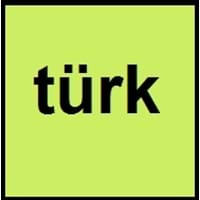Turkish vs Czech
- Turkish language oldest written records are found upon stone monuments in Central Asia, in Orhun, Yenisey and Talas regions.
- Turkish language was developed in the Middle East, streching all the way to Eastern Europe.
- The Czech language was known as Bohemian as early at 19th century.
- In czech language, there are many words that do not contain vowels.
Turkish and Czech Language History
Comparison of Turkish vs Czech language history gives us differences between origin of Turkish and Czech language. History of Turkish language states that this language originated in c. 1350 whereas history of Czech language states that this language originated in 9th Century. Family of the language also forms a part of history of that language. More on language families of these languages can be found out on Turkish and Czech Language History.
Turkish and Czech Greetings
People around the world use different languages to interact with each other. Even if we cannot communicate fluently in any language, it will always be beneficial to know about some of the common greetings or phrases from that language. This is where Turkish and Czech greetings helps you to understand basic phrases in Turkish and Czech language. Turkish word for "Hello" is Merhaba or Czech word for "Thank You" is děkuji. Find more of such common Turkish Greetings and Czech Greetings. These greetings will help you to be more confident when conversing with natives that speak these languages.
Turkish vs Czech Difficulty
The Turkish vs Czech difficulty level basically depends on the number of Turkish Alphabets and Czech Alphabets. Also the number of vowels and consonants in the language plays an important role in deciding the difficulty level of that language. The important points to be considered when we compare Turkish and Czech are the origin, speaking countries, language family, different greetings, speaking population of these languages. Want to know in Turkish and Czech, which language is harder to learn? Time required to learn Turkish is 44 weeks while to learn Czech time required is 44 weeks.





